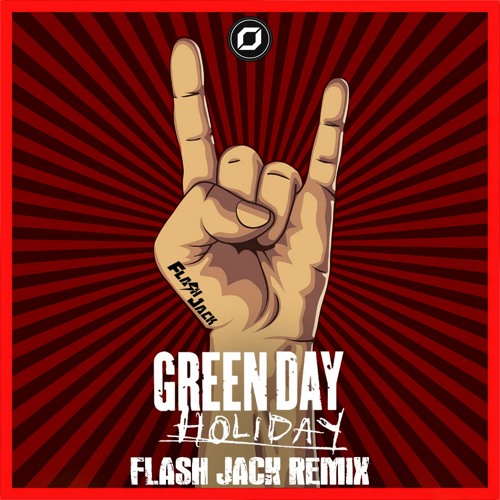“Desperation is sometimes as powerful an inspirator as Genius,” said former British Prime Minister Benjamin Disraeli.
By 2004, Green Day, what one writer called “the elder statesmen for the punk rock genre” was in such a moment of desperation. True, they had rocked the world with their stellar Kerplunk, Dookie, Nimrod, and Warning albums, but they were running out of steam after the passing of the second millennia.
The once youthful, brash teenagers who marketed their songs and band name (Green Day being a reference to the group’s enjoyment of marijuana) were losing their edge as they got older. They got married and had children. And their 2000 Album Warning underperformed financially, causing lead singer and songwriter Billie Joe Armstrong to doubt his ability to conjure up any more artistic hits, whilst his relationship with bass guitarist Mike Dirnt and drummer Tre Cool soured.
“It got to the point where I was afraid to talk to Dirnt and Cool about new song ideas,” Armstrong confided in a Rolling Stones interview, “because I had already assumed they would trash my ideas.”
Dirnt and Cool both were undergoing messy divorces, and the band grew further apart through their young adulthood.
“Armstrong developed into an overcontrolling wreck by 2002… at one point he even called Mike Dirnt and asked ‘Do you want to even keep doing this anymore?’ No wonder the band called it their midlife crisis.”

Things went from bad to worse when their planned 2003 album, Cigarettes and Valentines, had its tapes stolen, erasing months of progress. Green Day was now at a breaking point, but the trio elected to take a leap of faith. “We decided to move on and do something completely new,” states Armstrong.
Green Day, being a punk rock band, always had elements of cultural critique within their music. But by 2003, world affairs had posited Green Day as a unique situation to comment on. After the tragic events of 9/11, the invasion of Afghanistan occurred with little public backlash, but the 2003 invasion of Iraq occurred with dismay and horror from much around the world. Unlike Afghanistan, it seemed to have a clear lack of justification, with the Bush administration hitching their wagon off of the alleged Iraqi possession of WMDs – which later were proven to have never existed.
The following war saw hundreds of thousands of lives lost, and to worsen many Americans’ disillusionment, the media industry failed to accurately investigate the causes of the war. Armstrong felt that the coverage of the war essentialized the conflict by showing bloodstained Iraqi streets followed by advertisement cuts.

The rockstars may have been in their late 20s, but for them, American Idiot was a callback to their teenage years, with the album covering an American youth’s coming of age, with his disillusionment and alienation from American society becoming complete. Themes of love, anger at the world, youth rebellion, and despair in the face of life’s challenges are present throughout the album. To this day, it remains Green Day’s most emotionally charged musical release.
“The Rock Stars may have been in their late 20s, but for them, American Idiot was a callback to their teenage years.”
Below, I’ll review the first 7 songs from the album in chronological order and offer lyrical analysis and their greater context within Green Day’s musical history.
***Note: The following lyrics contain occasional expletive language.
Album Review
American Idiot
“Don’t wanna be an American idiot, Don’t want a nation under the new media, and can you hear the sound of hysteria? The subliminal mindf*ck America.”
“American Idiot,” the album’s namesake, cues from a ravaging critique of the American media sphere, responsible for a “mania” afflicting the populace. Dirnt’s guitar riffs pair well with Armstrong’s vocals venting frustration at America’s present reliance on “propaganda and alienation” to further its goals, and the song serves as an excellent starting point for the album. Later the critiques of mainstream American politics present throughout the album begin in this song.

Jesus of Suburbia
“We were kind of looking for a Bohemian Rhapsody-esque feel with this one,” Armstrong said of “Jesus of Suburbia.”
“We all just kept adding more and more lyrics to the ballad, and it just ballooned from there.” So said Armstrong of the album’s next piece, “Jesus of Suburbia”.
Jesus of Suburbia establishes the protagonist of the album’s storyline, a “son of rage and love,” an anti-hero constantly battling an internal war within himself over his own search for meaning in “The City of the Dead,” an allegory for the bleak and futureless environment he resides in. Jesus of Suburbia’s own apathy towards life becomes a repeated plot point throughout the album, a figure who while abusing drugs wanders in search of home, whether that be a 7/11 parking lot to abandoned shopping malls.

Our anti-hero certainly doesn’t appear to be the most thoughtful character, but Armstrong, Dirnt, and Cool all placed in lyrics suggesting this apparent deadbeat contains peculiar awareness about the world’s moral decay.
“Everyone’s raised by hypocrites, hearts recycled but never saved, from cradles to the grave, we are the kids of war and peace, from Anaheim to the Middle East,” bellows Armstrong halfway through the song – which at 9 minutes long is the longest of the entire album. It’s a ballad, a story laying the groundwork and motivations of our main character and detailing his initiation onto his newfound role as society’s wayward son.
After crying out “I don’t feel any shame… tales from another broken home! You’re leaving, you’re leaving, you’re leaving, ah you’re leaving home,” the song goes quiet, and we are left wondering where he goes next.
After crying out “I don’t feel any shame… tales from another broken home! You’re leaving, you’re leaving, you’re leaving, ah you’re leaving home,” the song goes quiet, and we are left wondering where he goes next.
Holiday / Boulevard of Broken Dreams
If “Jesus of Suburbia” detailed our main character’s initial alienation from his home and exodus in search of love, “Holiday” is the consummation of his rebellion. Dirnt and Cool may not have written all of the songs, but their bass guitar and drum solos could get even Dallas Cowboys fans excited at the future in store for them. It’s all meant to symbolize Jesus of Suburbia’s newfound exuberance, a stark contrast to his previous nihilism in the face of the world’s crushing despondency.
To be sure, “Holiday” ain’t all sunshine and rainbows – it is more of a spiteful rejection towards one’s past life – but you can’t help but feel excited even as lyrics such as “Hear the dogs howling out of key, to a hymn called ‘Faith and Misery’, and bleed, the company lost the war today,” blare out beside a confident storm of bass guitar.
“The song is sprinkled with criticism toward the American government,”
The song is sprinkled with criticism towards the American government, a force ironically praised by Armstrong with the phrase “‘Siege Heil’ to the President Gasman, Bombs away is your punishment, pulverize the Eiffel Towers, who criticize your government!” All this – including the utilization of Nazi German phrases used in respect towards dictator Adolf Hitler – paints the American government as destructive and abrasive towards the value of human life.

But after rejecting this state, Jesus of Suburbia cries “Trials by fire is not the way that’s meant for me, just cause because we’re outlaws yea… this is the dawning of the rest of our lives, this is our lives on Holiday!”
Such optimism for a better future is short-lived, as in one of the greatest musical song duets I have ever listened to, the high-pitched guitar and fast-paced drum beats are replaced by slow guitar notes that immediately stop the action. Armstrong’s next lyrics placed this song as the band’s most iconic:
“I walk a lonely road, the only one that I have ever known, don’t know where it goes, but it’s home to me and I walk alone. I walk this empty street on the Boulevard of Broken Dreams.” Holiday’s excitement at the rejection of the state has shifted to a melancholic reflection on our hero’s current state. Hints to this bleak future were hinted at before during Jesus of Suburbia, but it seems our disillusioned son finds no hope anywhere he walks.
“I walk a lonely road, the only one that I have ever known, don’t know where it goes, but it’s home to me and I walk alone. I walk this empty street on the Boulevard of Broken Dreams.”

It’s unknown what directly led to the newfound calamity present in Jesus of Suburbia’s life – but the shift from Holiday’s plural pronoun usage (“because we’re outlaws”) to Boulevard of Broken Dream’s focus on one individual’s despair indicates that this lonely figure finds himself isolated from the outside world.
It fits in with Green Day’s previous feelings of rejection. Remember, the groups’ idyllic teen punk rock band days were long behind them, and repeated divorces and internal conflicts had threatened to tear down any remaining stability they had. It seems that Armstrong – who during recording had spent weeks away from his family in New York during the winter – could personally relate to the plight Jesus of Suburbia finds himself in.
Holiday finds itself at number one for this reporter’s favorite American Idiot single, whilst Boulevard of Broken Dreams earns itself a respectable second place.
Are We the Waiting / St. Jimmy
The next song is also a duet, but in reverse order, with the more reflective and somber “Are We the Waiting” followed by the chaotic “St. Jimmy”. The former begins with the now depressed Jesus of Suburbia wallowing in the “same dirty town I was burning down in my dreams,” a realization that his own revolution has indeed failed.
The protagonist even begins to doubt his own mission, wondering if Jesus of Suburbia – the prophet who brought the downtrodden out of their pointless lives – “is a lie.”
“The Jesus of Suburbia is a lie.”
But just at this moment of doubt, the recalcitrant St. Jimmy appears. A “king of forty thieves, here to represent the needle in the vein of the establishment, with an angel face and a taste for suicidal.”
The dichotomy present throughout this mythical figure is repeatedly called to attention, and it is not by accident. Green Day, despite holding that figures such as St. Jimmy ultimately bring hope to the hopeless, his own self-destructive lifestyle can offer no long-lasting salvation.
Give Me Novacaine / She’s a Rebel
Flipping back to the morbid, “Give Me Novacaine” puts us in the position of a person suffering from extreme emotional pain, a “sensation overwhelming… [needing] a long kiss goodnight, then everything will be alright.” It’s clear that this affliction is loneliness, again not surprising given Green Day’s scarred relationships with their families and loved ones.
St. Jimmy again pops up, trying to convince his acolyte that everything remains alright, but our hero still longs for true love to numb his pain, represented by the drug Novacaine.
“Like Saint Jimmy this girl paradoxically offers salvation to the Jesus of Suburbia while also holding the potential for destruction, a detail that goes convienently ignored.”
Again, a change of melody occurs, with the slow acoustic guitar giving way to the rapid-fire bursts of Dirnt’s bass guitar. Our character’s salvation comes now in the form of a “rebel, a saint, the salt of the earth, a vigilante… holding on my heart like a hand grenade.” Like St. Jimmy, this girl paradoxically offers salvation to the Jesus of Suburbia while also holding the potential for destruction, a detail that goes conveniently ignored.

Extraordinary Girl / Letterbomb
It’s unclear if “Extraordinary Girl” is detailing the same savior figure that “She’s a Rebel” idolized previously, but Jesus of Suburbia’s treatment of her is the same. Slower paced than the previous duet, the album’s repetition of revealing both sides to a story continues: this Extraordinary Girl suffers, like the main character, from severe bouts of depression and hopelessness in the face of the world before her.
Letterbomb draws criticism towards perceptions of true change within the world; this infernal realm our false sage and gloomy companion find themselves in doesn’t have the potential to provide a meaningful escape. So impossible is it to find a pragmatic escape from their horrors, Armstrong writes that “it’s not over till you’re underground,” as if our protagonists have to escape to an underground Zion for safety, ala the Matrix.
St. Jimmy’s false offer of fulfillment becomes more transparent by the song, a man who merely represents “a figment of your father’s rage and you’re mother’s rage,” someone so obsessed with rebellion that they only serve to take the whole world down with them. At the end, the Extraordinary Girl, overwhelmed by the lack of meaning behind her new posse, tearfully bids farewell to Jesus of Suburbia.
Wake Me Up When September Ends
You’d think American Idiot’s repetitive mantra of “musical critique of dystopia, excitement at a new future, morbid hopelessness, repeat” would get tired, but Green Day’s innovative usage of new lyrics, instrumental notes, and pacing keeps every song fresh. Wake Me Up When September Ends is my third favorite song throughout the album, precisely because it breaks the mold of the previous songs.
“Wake Me Up When September Ends breaks the mold of the previous songs.”
Armstrong wrote this song in reference to his father’s death when he was 7 years old – a traumatic event referenced with the lyrics “like my fathers come to pass, seven years has gone so fast, Wake me up when September ends.”

Armstrong, like Jesus of Suburbia, shares the experience of endless pain and suffering, two figures hardened by the destruction of all they hold dear. Maintaining a slow pace throughout the piece, the band mostly utilized the triangle, soft snare drum beats, and acoustic guitar with occasionally fiery blasts from Dirnt’s bass.
Conclusion
Well, that’s the end of this editor’s review of the Green Day album, American Idiot. Green Day has always held a special place in my heart, but the unique circumstances surrounding this musical masterpiece’s conception make listening to it all the better. There are 5 more additional songs in the album – Homecoming, Whastername, Too Much Too Soon, Shoplifter, and Governator that I highly recommend.
When I first listened to American Idiot, I merely thought it was yet another punk rock album that seemed too bitter at the world it stared at. However, upon revisiting the album throughout the writing of this article, I realized the truly spectacular lyrics and context of each song, as well as how the storyline progresses.
Jesus of Suburbia is someone whose bitterness to his present squalor, heartbreak at the loss of true love, and ecstasy at the idea of a new emancipatory future remains powerfully relatable in today’s world.
Stay tuned to The Roundup’s Viewpoint Section for more musical and media reviews, and keep living your lives on “Holiday.”

